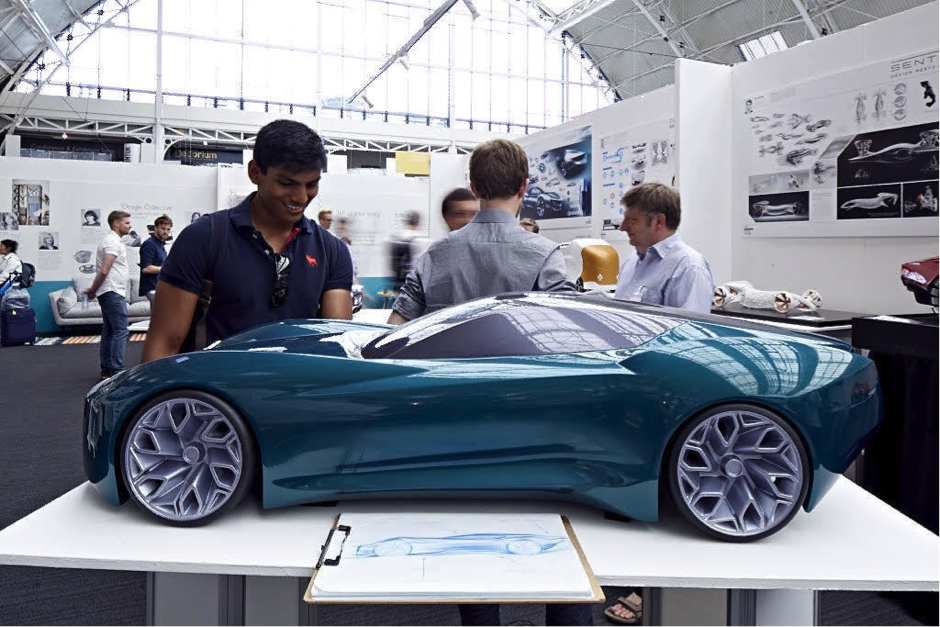Design-Led activities in early stage innovation has de-risked decision making for new products and services

The Design Foundations programme, launched in January 2017 by Innovate UK, set out to support the generation of new products, services, and business models by UK businesses. By encouraging the use of design-led activities (including user research, prototyping, customer engagement, creative problem solving) in the early stages of innovation to the funding aimed to embed faster, more effective innovation processes, improve ability to innovate rapidly, de-risk innovation pipelines, and increase sales.
An interim evaluation by FutureGov has been published reviewing the impact of the Design Foundations programme to-date. The findings indicated that there are significant benefits for companies applying early stage design thinking. As we head of out of the initial phase of lockdown from COVID-19, what relevant lessons can we see about applying design to support businesses? Many companies are currently struggling with re-establishing market position, re-engaging with investors and pivoting their offer to changed market circumstances.
It was clear that companies involved in the programme made discoveries about their products, customer base, or new sources of funding that would not otherwise have emerged. Also, companies experienced a greater pace of change through this programme than through their existing innovation processes, particularly around quick prototyping, early feedback and relationship building with customers. You can read the interim evaluation here.
Report Highlights
- Activities under the Design Foundation programme have helped companies de-risk decision making around investment in new products and services. The design process was effective to support companies to quickly decide whether to pursue an idea, better understand the needs of their potential customers in more subtle ways, and subsequently de-risked bringing the idea forward for further development. It is also more likely to form part of a company’s innovation process in the long term.
- New products are being developed through the programme that are unlikely to have received support otherwise. “Design Foundations has been crucial to me being able to do this. If I had gone to our board and said ‘I need £50,000 to go speak to some of our customers before we make anything’, they would have laughed me out of the room. But now they can see that actually this has some value and they’re willing to put in some support to do it”.
- The Design Foundations programme has helped companies think more broadly about their own business model and opened up new potential revenue streams (both through public and private funding streams) Helping businesses to perceive a different range of stakeholders in the supply chain may generate new perspectives on the proposition and who may value that in different ways. “Through speaking to the farmers, and seeing who they interacted with, we realised that there are others who would be customers, like nutritionists or vets”.
- The Design Foundations programme has brought about a realisation that design plays a role in customer insight and the programme is helping companies understand their customers or users better. “We learned so much about our customers through spending time with construction companies, on building sites, getting to know them. We don’t just think about if the product improves safety now but how it is stored, how it is used. We know our customers better, they know us, and they’re going to be working with us to make sure we always understand the needs of our customers and why they would choose to give us their business”.
- Design Foundations is increasing innovation by creating new collaborations and connections across fields. “We have partnered with a design agency before but this is a new partnership. It’s been great so far, a real shot of energy into our processes and ideas. I think it’s something we will keep going long-term, especially if it does really reinvigorate our product line”.
- After the Design Foundations programme, companies show a more sophisticated understanding and use of design. “Something that has really surprised me is how that we understood our customers’ motivation better and we can make a case for why they would want to buy our product. I’m trying to learn as much as I can because I think we can use this in the future when we are trying to come up with new products”.
While no silver bullets exist to address the significant challenges ahead, insights from the experiences of companies applying human centred design to their business development show they have been able to use new insights and understanding from those with whom they are anticipating a sale to pivot and become more agile, and possibly resilient, as a result.
In summary, the evaluation concludes that we should expect to see companies generating greater economic value from their products and services in 2020 as a result of new innovation processes that involve early stage design activities.

